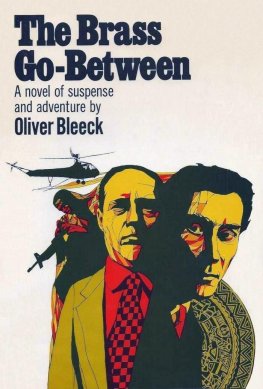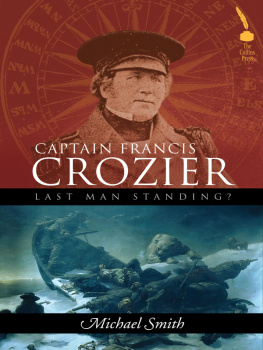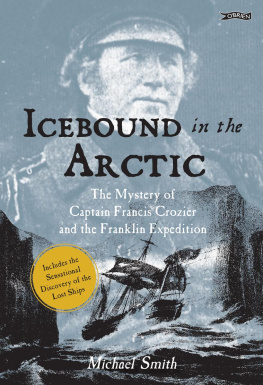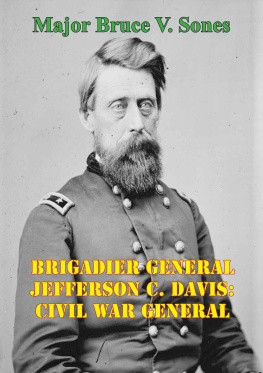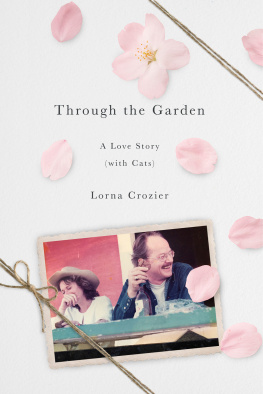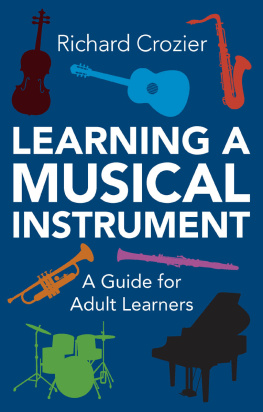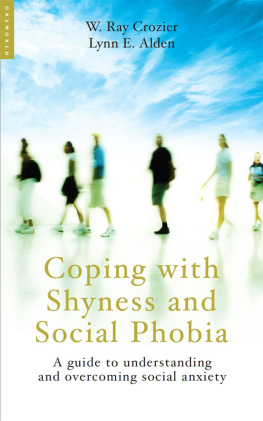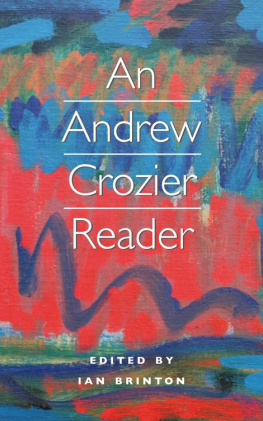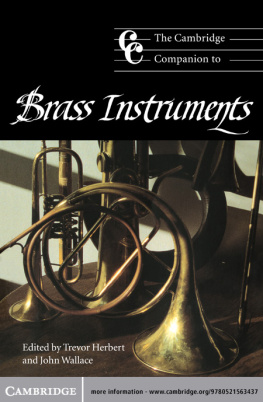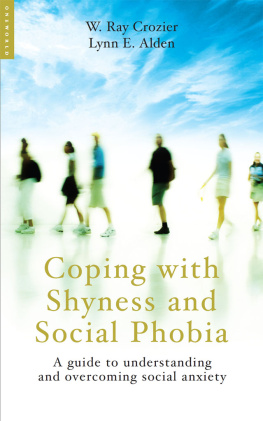
This edition is published by PICKLE PARTNERS PUBLISHING www.picklepartnerspublishing.com
To join our mailing list for new titles or for issues with our books
Or on Facebook
Text originally published in 1930 under the same title.
Pickle Partners Publishing 2013, all rights reserved. No part of this publication may be reproduced, stored in a retrieval system or transmitted by any means, electrical, mechanical or otherwise without the written permission of the copyright holder.
Publishers Note
Although in most cases we have retained the Authors original spelling and grammar to authentically reproduce the work of the Author and the original intent of such material, some additional notes and clarifications have been added for the modern readers benefit.
We have also made every effort to include all maps and illustrations of the original edition the limitations of formatting do not allow of including larger maps, we will upload as many of these maps as possible.
BRASS HAT
IN
NO MANS LAND
by
BRIG.-GEN.
F. P. CROZIER
TABLE OF CONTENTS
Contents
TABLE OF CONTENTS 2
LIST OF ILLUSTRATIONS
Brig.-Gen. F. P. Crozier, 1916
Lieut-Colonel G. S. Ormerod and Officers, 9th
Royal Irish Rifles, 1915
The British Front Line after the German counter attack at Thiepval, July, 1916
Ruins of Thiepval Village after the battle
A Battle Message from the Author to Major P. J. Woods, 9th Royal Irish Rifles, Thiepval, July 2 nd 1916
German prisoners, taken by 119th Infantry Brigade at La Vacquerie, May, 1917
A German prisoner captured in 1917
Bourlon Wood from Graincourt, November, 1917
A Letter received from the Prime Minister on the occasion of the capture of Bourlon Wood by the Welch Bantams, December, 1917
The ruins of Ervillers from which Lieut. G. V. Jones, 18th Welch Regt., ejected a German Regiment, March, 1918
A Wrecked Bridge over the River Scheldt, crossed by The Boys of the Old Brigade on the night of November 7th-8th, 1918
O.C. and Staff, 119th Infantry Brigade, 11 th November, 1918
DEDICATION
A humble tribute to my Fallen Comrades who gave us Peace and an expression of hope that we may, as a Nation, be worthy of their Sacrifice
INTRODUCTION
IN the year eighteen hundred and eighty-seven, when colonial troops and statesmen had come to London for the first time, in organised array, to pay homage to the Throne, on the occasion of the fiftieth anniversary of the accession of the Great Queen VICTORIA a small boy played on the lawn of a pleasant Hampshire home, with tin soldiers, a drum, a gun, a bugle, and in fact the whole bag of military tricks.
Not far distant lay the New Forest the hunting ground of monarch and guerilla, battlefield of Roundheads and Cavaliers. Hurst Castle, a place where the unlucky Charles once rested could be seen in the distance, while Carisbrooke lay across the narrow water. The guns at Spithead could be heard firing a salute. The Victory kept guard over the far-flung ocean communications of the Empire at Portsmouth.
Close to the youngster sat two elderly gentlemen in easy chairs, regarding with amusement the tactical dispositions of the child, for they were his grandparents. The elder of the two men had given the greater part of his life to the Empire in India, the younger had spent many a cold night in the Crimea with the 9th Foot; after which he had retired for peace and comfort to Ireland, as a Resident Magistrate, only to find that he had passed from the frying pan into the fire, for had he not to read the Riot Act at Portumna over the sad eviction of the tenants of the late Lord Clanricarde?
The one was a lineal descendant of many a sailor; for there were always Croziers in the Royal Navy. The other, a Percy, claimed descent from Harry Hotspur and certainly inherited the temperament which had earned his soubriquet for that son of the House of Northumberland. This grandparent was indeed a Percy by birth, name, and nature.
While the two old men sat basking in the sun, a younger man appeared on the scene. He too was a soldier who had arrived from Burma with a Jubilee presentation, from the women of that country for the Great White Queen. Incidentally he was the youngsters father, as could easily be seen not only in the likeness of feature but in the way he took the child affectionately on his back for a scamper round the garden. While the romp was in progress three young men, uncles of the youngster on the Percy side, strode manfully across the grass to salute the elder generation. They too were soldiers. One, like his father, in the 9th, was about to see service in Burma; the other, a red marine, had been on constant guard in the Near East so that the Russians should not reach Constantinople; while the third and youngest, a Cape mounted rifleman, had been helping to secure the Flag at the Cape.
It was a manly gathering and typically representative of two houses which had given of their best for England since long before Henry V secured the Kingdom of France at Agincourt, and had fought on almost every big battlefield in the world on which Englands honour had been entrusted to English arms.
The talk must have turned to the Russian menace to India and Constantinople, for the two grandfathers definitely decided in their minds that their sons would soon be in the fray.
The two older men were quite unlike each other, save in one respect sacrifice for the Crown, and for that there was no limit. Crozier, the elder, was a high-minded man of noble endeavour and spiritual inclination, and it is recorded that on this occasion he gave vent to the following peroration: As we see it now there is no end to war which I, as an administrator, know to be destructive of all good and productive of little save misery. You, he went on to say, pointing to the younger soldiers present, will be called upon, no doubt, to take part in much slaughter on the field of honour, and even that child there will someday play with human soldiers instead of tin ones. But, with it all, the world as I see it will one day wake up to the fact that, to quote Shakespeare, Peace is a conquest. That will not be achieved till material factors are subordinated to moral and spiritual requirements; but it will surely come. I know this from the results of missionary work in India, in which, as you know, both during my service, and even more so since my retirement, I have taken the greatest possible interest. The old man was right. In twelve years time the child was fighting in South Africa and continued to fight almost incessantly until 1921. Perhaps the reader may have guessed that the youngster who was playing with tin soldiers on the peaceful Hampshire lawn in the Queens Jubilee year was none other than the writer. But if the solid old grandfather was right in the one conjecture is it not within the realm of reason and reality that he should also be right in the other?
Is permanent World Peace perhaps even now in sight?
CHAPTER I 1914
IT is August. The sky is clear, with not a cloud to be seen. The world war is on us, mobilisation has begun. The Atlantic rolls on to the rugged rocks of Antrim as it has always done, despite the pending upheaval and the worried thoughts in the minds of men and women. We motor swiftly along the savage coast three friends and myself, of whom I alone am to come unscathed through the furnace. We talk and laugh and joke, each no doubt wondering how long it is to be before he is to get to grips with the enemy. As we approach Belfast there are ominous signs of war, and we are glad. To us the relief is truly great.





